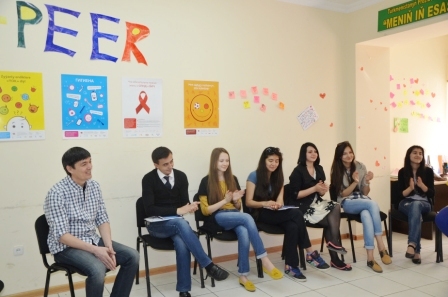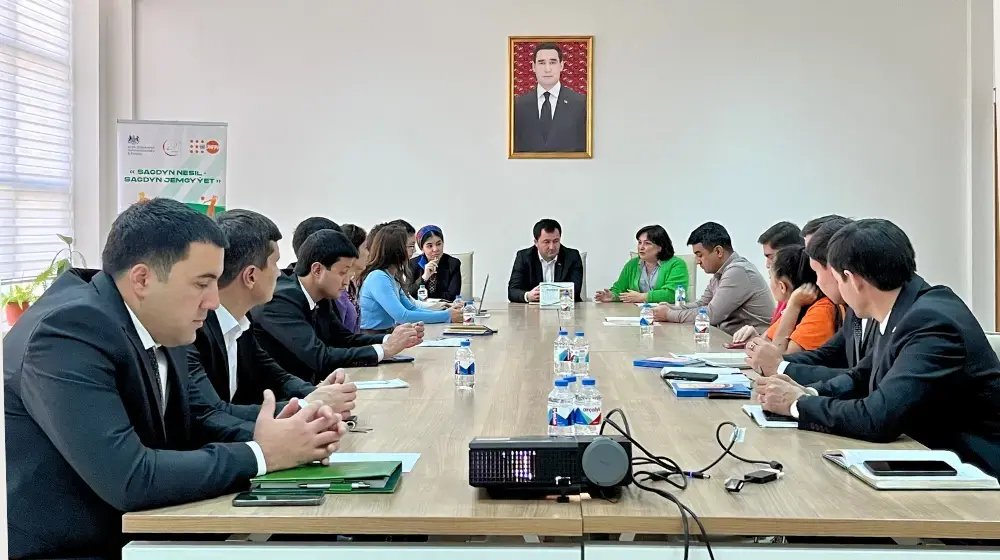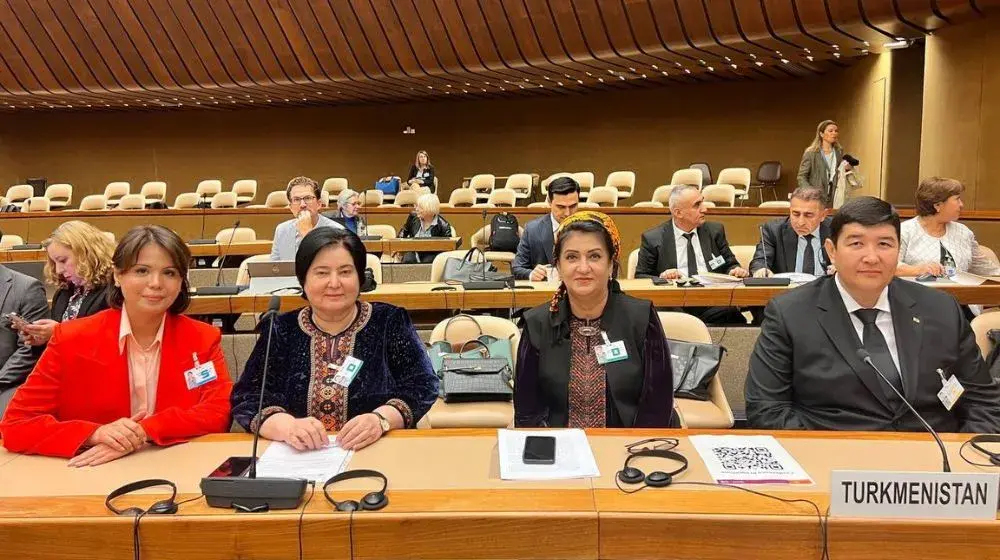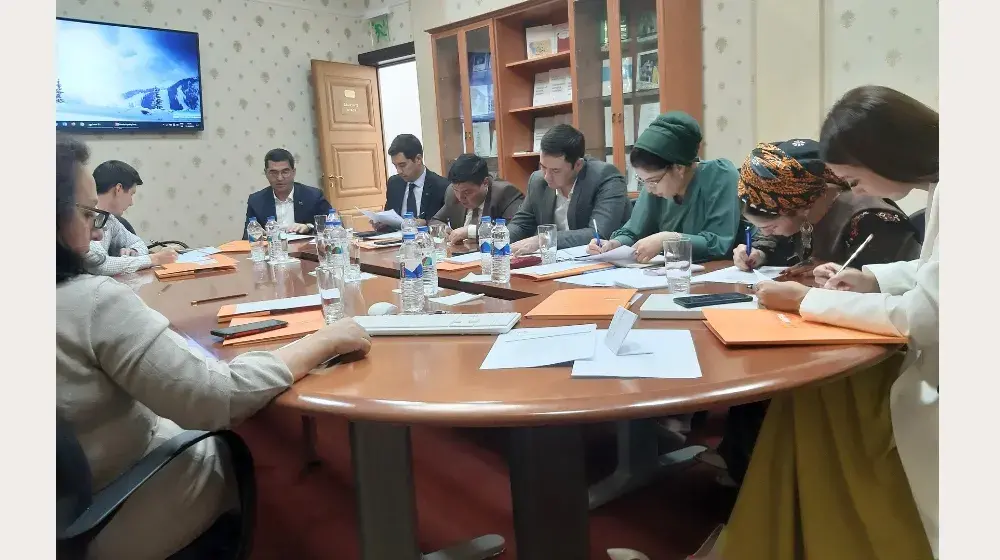UNFPA led national youth consultations on the post-2015 development agenda identified the vision of Turkmen youth on the future they aspire for their country and the world beyond 2015.
Ashgabat, 6 May 2013 – UNFPA led national youth consultations on the post-2015 development agenda identified the vision of Turkmen youth on the future they aspire for their country and the world beyond 2015.
Young people identified the achievements they would like to see by 2030 through focus group discussions and essay contest, which were held in the capital and all regions of the country. Nearly 900 young people participated in the consultations and provided their insight on constructing a just society, where people are able to enjoy their rights and young people can realize their full potential.
The results of the consultations show that the young people are generally optimistic and pleased with the perspectives lined out for them in their country. Yet one of the priorities outlined by the young participants was the access to quality education. They agreed that quality education plays a crucial role in equipping the youth with the necessary knowledge and skills for full and effective participation in socio-economic life of the country.
As one of the focus group discussants said, “We would like to see a significant improvement in the quality of education between 2015 and 2030, including quality of information, quality of teaching, and quality of receiving.” The young people see direct correlation between the access to quality education and decent job security in the future.
Here, the youth also noted the role of the inclusive education, where the youth with disabilities can attain equal rights and opportunities in receiving quality education from specially trained teaching professionals on all levels, and the need for technology and necessary infrastructure to make school facilities accessible.
By 2030, the young people see an increase in life expectancy in the country and in the world owing to the improved living conditions and quality of medical care. A young focus group participant said that “such progress will be the result of the National development programs, aimed at meeting the demands of young people in the area of reproductive rights, youth-friendly services and information.” They pointed out the need in improvement of the secondary school education program in the area of healthy lifestyle, particularly “inclusion of quality information on STI/HIV prevention, sexual and reproductive health.”
The young people generally believe in healthy future of the nation, which is based on the easily accessible medical care services and public information campaigns aimed at healthy lifestyle, sports and healthy diet, preventing bad habits and at environmental awareness. Nevertheless, young participants with disabilities are hopeful that by 2030 the support of the Government will be extended to improving the benefits for the people with disabilities, including acquiring the costly medicines, getting the costly treatments in or outside of the country, creation of the rehabilitation center for treatment and prevention measures.
The participants of the focus group further discussed the importance of civil engagement and underlined the following areas for development of particularly youth engagement: increasing access of young people to information on youth engagement opportunities; development of the programs and projects to be led by youth; development of youth representation and ability to participate in decision-making; creation of youth councils and youth parliaments, which will enable them to fully participate in the public and social life and get a better understanding of the socio-cultural changes; and creation and support of the youth centers.
Young people, grades 8 to 10, from 17 secondary schools across the country were also able to express their vision through a creative process of essay writing. Unlike the focus group discussions, this methodology ensured that the topic of well-being and priorities beyond 2015 is approached from individual point of view.
Majority of the young people believe that to achieve personal and family well-being by 2030, it is important to have strong health, quality education and financial means. The young people also showed concerns for the problems, which may prevent the well-being and must be addressed by 2030, including prevalence of bad habits, youth unemployment and STI, including HIV.
The basic education is the critical component of the social development programs. The youth noted that improved quality of education is the prerequisite for future job security of young women and men, full participation and engagement in socio-cultural life, creating the families and adapting to the changing socio-economic conditions.
The national youth consultations have shown that the young people are fueled with ideas, which can be considered by the Government. The youth can be an integral part of preparing evidence-based development programs, which can effectively meet their demands and interests, and endorse the youth with the ownership and responsibility to take active part in the development process.
***
UNFPA: Delivering the world where every pregnancy is wanted, every childbirth is safe, and every young person’s potential is fulfilled.
For additional information, please contact:
Yelena Butova, Education Advisor
Ene Tuyliyeva, Advocacy Communication Associate
Tel: 425250
Web: turkmenistan.unfpa.org





